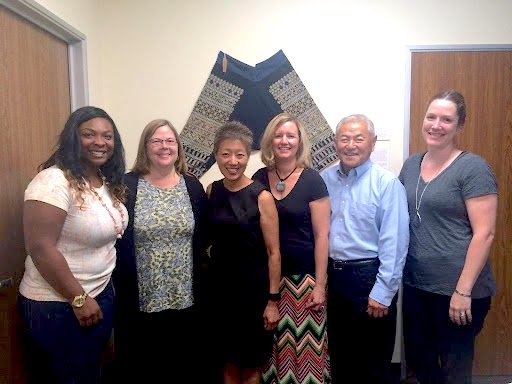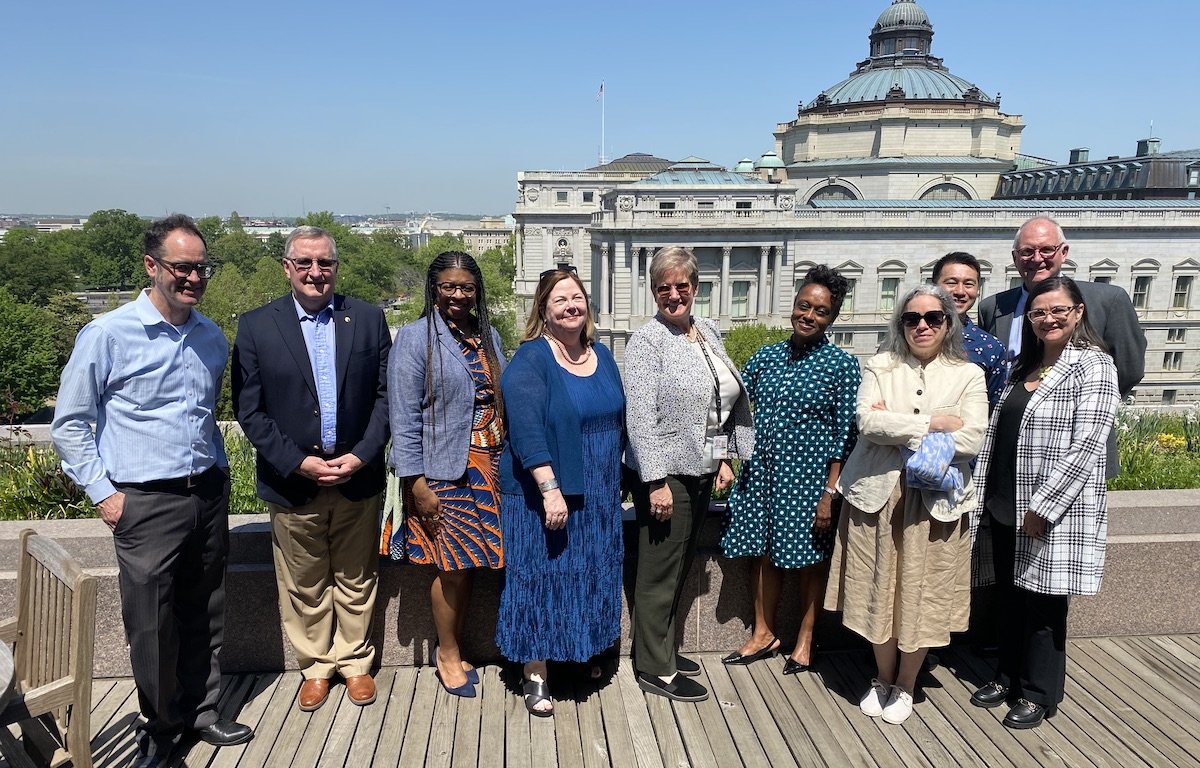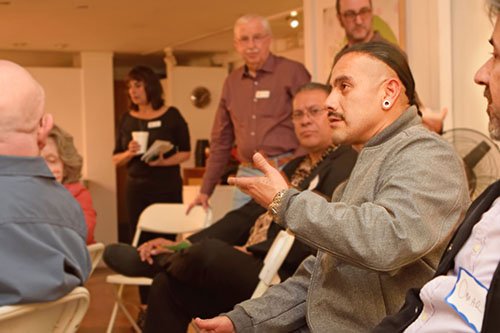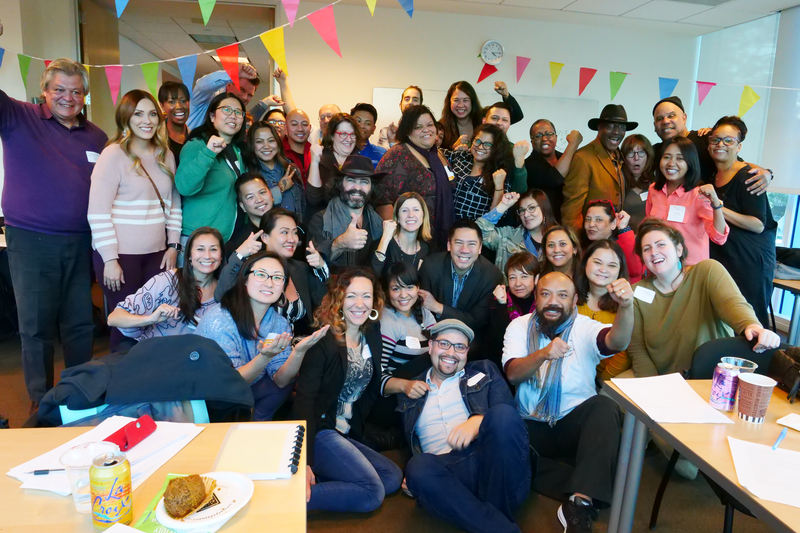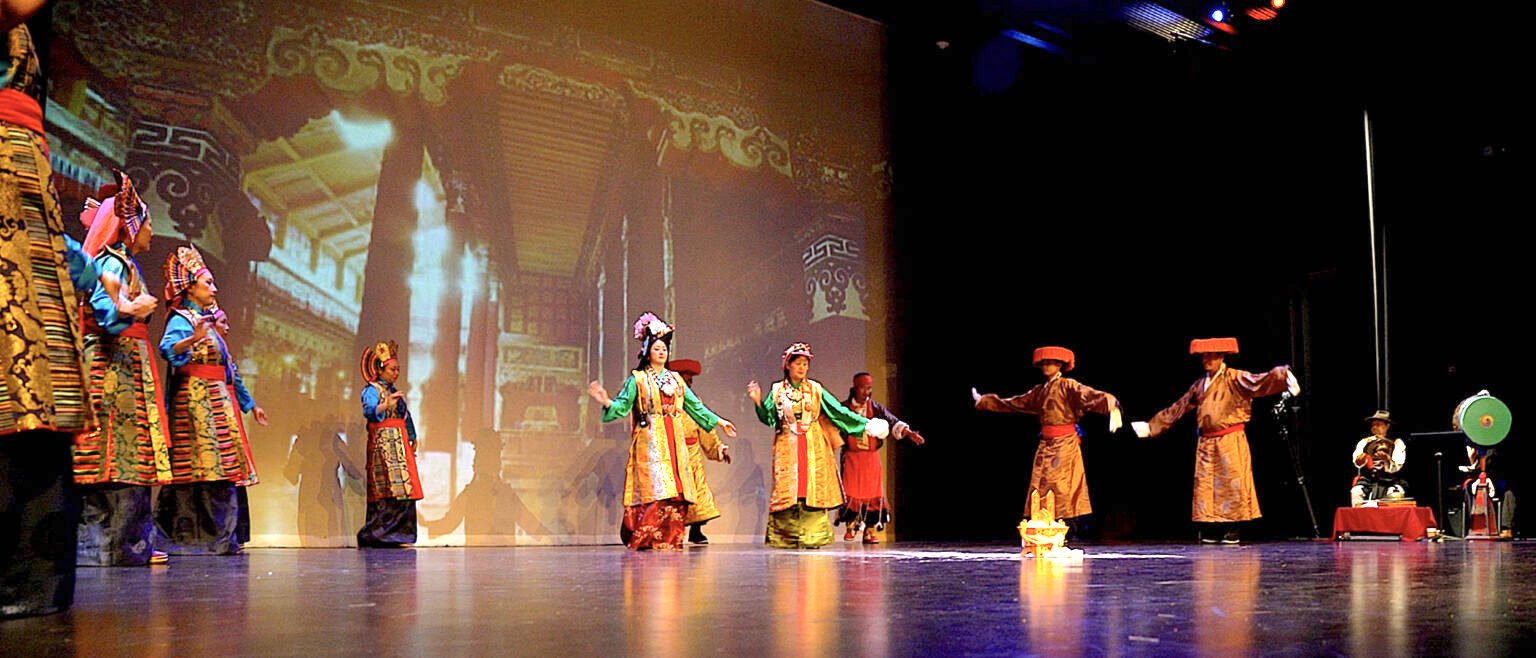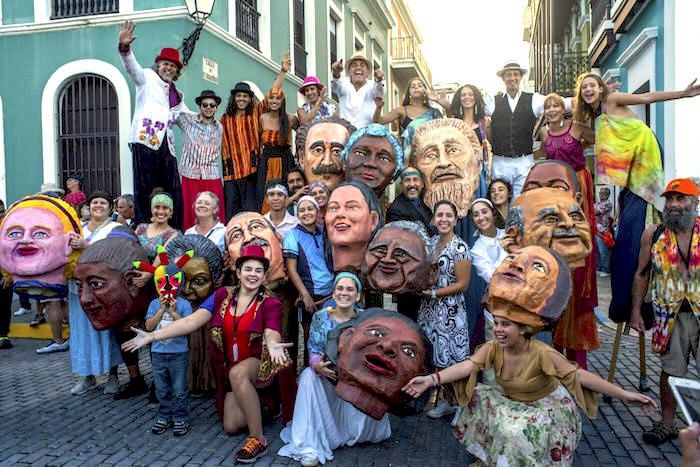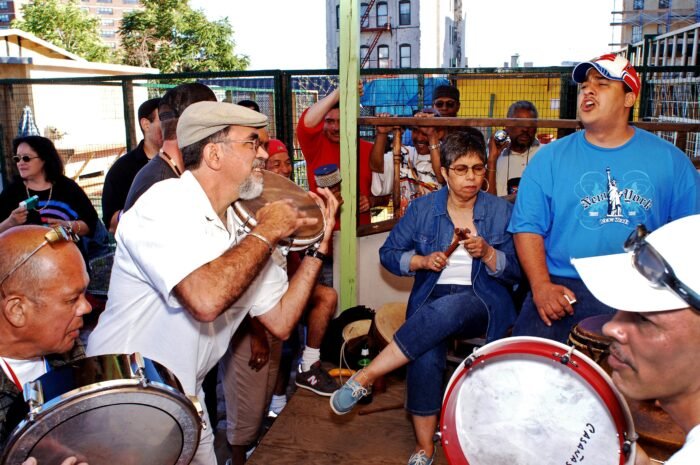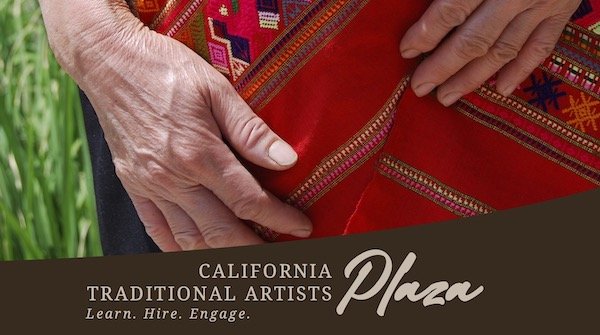Field Building
Over the years, ACTA has been a key player in shaping the changing terrain of the field and practice of folk and traditional arts in California and beyond. From launching field surveys and developing resources for the field to spearheading collaborative initiatives advocating for the growth and wellbeing of traditional artists and cultural organizations, join us in reflecting on our quarter-century journey to bolster the broader understanding and support of our cultural traditions.
About the images featured in this timeline.
“Leading our first statewide field survey
From ACTA’s conception, we knew a field survey was essential to identify culture bearers and grasp community needs. Collaborating with folklorists, we survey and compile insights from diverse communities across the state and many of our partners to create the first statewide database of folk and traditional artists.”
“Launching our first website as a resource to the field
During the dot-com boom, we launch our first website: a platform to unite folk and traditional artists, professionals, and funders. Today, approximately 100,000 annual visitors from nearly every country visit our site to view opportunities, access our artist database, explore our multimedia archive, read research publications, peruse artist features, or subscribe to our newsletter, The New Moon.
”
“Culture bearers advocate for traditional arts in Sacramento
Since our inception, ACTA has been educating policymakers about the impact of traditional artists and culture bearers, as well as advocating for increased funding and support. After a 20-year hiatus, the Joint Congress of the Arts convenes over 1,000 arts supporters in Sacramento to speak with state legislators. ACTA brings participants of our Apprenticeship Program to advocate for the arts and facilitates discussions on the field’s most pressing issues.
”
“Spotlighting the traditional arts field to National Arts Funders
ACTA joins the Grantmakers in the Arts as one of a handful of dedicated traditional arts funders in the country. In our first 20 years, we offer 21 insightful sessions and workshops, bringing artists and funders together for wide-ranging discussions: mentoring in the arts, sustaining cultural ecosystems in the Eastern US, innovative approaches to documenting and conserving folk and traditional arts, transforming communities through creative placemaking, and understanding the ecology of community knowledge. We brought folk and traditional arts and artists into the national dialogue of arts funders—an effort which continues to this day.View ACTA’s GIA Session Archive →
”
“Launching the Traditional Arts Roundtable Series
You never know what magic will transpire from gathering 25 artists and community leaders in a room. In 2008, we launch our Traditional Arts Roundtable Series (TARS), formalizing our long-standing tradition of fostering intercultural connections among traditional artists. These roundtables help artists discover resources, forge creative relationships, and support both their own work and that of their newfound colleagues and friends. Our inaugural TARS at the Bay Area Video Coalition hosts a panel of grant reviewers, who share their insights on successful applications. We go on to host more than 60 TARS events across the state (and now online), including our “La Mesa” series where we convene traditional artists to discuss the cultural specificity of their work.
”
“Radically changing how the field understands cultural engagement
Just before “Creative Placemaking” gains traction in the national arts scene, we collaborate with Wolf Brown on a cultural engagement study commissioned by the James Irvine Foundation. The study focused on California’s San Joaquin Valley and the Inland Empire, two rapidly-growing and racially diverse regions that encompass nearly 8 million people. With our background in ethnographic research and our deep experience in the region, we facilitate door-to-door surveys in six neighborhoods as well as the “California Cultural Census” online and at local events.
The collaborative analysis yields a groundbreaking study, reshaping the field’s understanding of folk and traditional arts engagement outside traditional nonprofit structures. For the first time in California, the study, co-authored by ACTA’s Amy Kitchener, Alan Brown, and Jennifer Novak, captures the breadth, depth, and diversity of cultural engagement: we find that 50% of respondents practice cultural traditions that relate to their heritage, from Black churches to Folklórico celebrations, an Armenian Food Festival to home brewing beer, Gay Pride Parades to Chinese New Year. Our frameworks and methodology influence arts research and funding practices for years to come.
”
“Mobilizing to support artists during the economic recession
Amidst the banking and mortgage crisis, ACTA takes swift action with partners to gather data on the economic impact on traditional artists. We spearhead a national online survey of the folk and traditional arts field, sharing findings with the national task force of arts organizations advising the Obama Transition Team. The survey indicates the scale of reduced services and organizational closure — crucial information during income declines and job losses.
”
“Leading dialogues in cultural equity
After years of engaging TARS events, we launch Building Cultural Equity through the Traditional Arts, a new community forum in Los Angeles for traditional artists, funders, leaders, and equity advocates, facilitated by Jerry Yoshitomi. An interactive online series of conversation excerpts and written articles based on the dialogues follow on our website, providing an opportunity for more inclusive commentary beyond the actual events.Read an example dialogue on GIA’s website →
”
“Fighting to save NEA’s National Heritage Fellowships
When the NEA announces their plans to consolidate the National Heritage Fellowships into a new honorific for all the arts disciplines, we jump into action. ACTA partners with the National Council for Traditional Arts to gather stories about the Fellows’ impact, and we organize a delegation to visit NEA Chairman Rocco Landesman in Washington DC. Our advocacy, alongside past Fellows and a robust field of cultural workers, successfully turns the tide. Discussions with legislators and senior agency officials lead to the reinstatement of the National Heritage Fellowships, a vital flagship program for the country’s traditional arts.Read 2011 reflections from National Heritage Fellows →
”
“Highlighting the San Joaquin Valley to the NEA
Although California has a rich tapestry of artists and culture bearers, the attention of national funders had long been directed largely to the Bay Area and Southern California. Seeking to expand the narrative, we host NEA Chair Rocco Landesman in the Central Valley for conversations and demonstrations by local traditional artists, marking the first time an NEA Chair visits the area. In 2015, NEA Chair Jane Chu also visits Fresno and Los Angeles and we organized a public forum. Our town hall, moderated by writer and peach farmer David “Mas” Masumoto, features performances by Indigenous Mixtec dance and musical groups Grupo Nuu Yuku and Banda Brillo de San Miguel Cuevas. The event launches a three-day tour celebrating artists preserving cultural traditions integral to their communities’ identity.Read more about the 2015 tour →
”
“Recognizing the value of small arts organizations
In partnership with Ann Markusen, director of the Arts Economy Initiative at the University of Minnesota and the researcher who coined “Cultural Placemaking,” ACTA’s Amy Kitchener publishes an article on the value of small arts nonprofits. “Working with Small Arts Organizations: How and Why It Matters” shares ways for funders to collaborate with smaller arts nonprofits, urging philanthropists to support a fuller range of artistic expression. While mainstream funders take a decade or more to recognize the value of these organizations, this article lays the groundwork for a more inclusive art world.
”
“Awarding the first California Living Heritage Award
We develop the California Living Heritage Award to recognize outstanding contributions to folk and traditional arts. In 2012, we honor mariachi legend Natividad “Nati” Cano, one of our founding board members, with the award. Founder of the world-class Mariachi los Camperos, Nati pioneered mariachi music education in the US, developing a pedagogy and teaching thousands nationwide.
In 2014, we award arts leader and Chicano activist Josephine Talamantez, and in 2018, pillar of the indigenous community in Humboldt County, Brian D. Tripp. East LA artist José Ramirez was commissioned to create the Award, painting it as a lush fruit tree symbolizing tradition’s roots and fruits.Read more about the first California Living Heritage award →
”
“Serving in leadership roles across the field
ACTA’s staff and leadership advise, consult, and serve on boards nationwide. In 2014, Amy Kitchener joins the Board of Grantmakers in the Arts; in 2017, she receives a Congressional Appointment to the Board of Trustees for the American Folklife Center at the Library of Congress, becoming Chair in 2019. She is reappointed in 2023 for a second six-year term. Throughout these tenures and more, ACTA enthusiastically promotes folk and traditional arts, advocates for increased funding, and shares field insights with California artists and culture bearers.”
“Co-hosting a national symposium on cultural sustainability in the age of globalization
As part of our inaugural Sounds of California program at the 2016 Smithsonian Folklife Festival in Washington D.C., we partner with the Smithsonian Center for Folklife and Cultural Heritage to engage the many global arts leaders and practitioners who’ve traveled to our nation’s Capital. Together, we co-curate a one-day symposium identifying exemplary efforts to sustain local artistic practices and cultural identity amidst accelerating globalization. We host panels on cultural heritage and wellbeing, economic sustainability, and cultural revitalization.
”
“Finding strength and hope in a political upheaval
In March, right after President Trump’s inauguration, we gather Los Angeles artists at Trópico de Nopal for a Traditional Arts Roundtable. Together, we share perspectives on sustaining cultural art forms in the face of Trump’s anti-immigration politics. Despite the devastation felt by many in the room, the event becomes a powerful example of the restorative force of community, as attendees find strength and hope in connections forged over shared perspectives and shared meals.
”
“Advising the grantees of the CAC’s Cultural Pathways Program
The California Arts Council contracts with ACTA to leverage our unique perspective and skill set as a statewide organization. Our task: to offer in-depth training and practical tools to their inaugural Cultural Pathways grantee cohort—organizations rooted in communities of color, recent immigrant and refugee communities, tribal or indigenous groups, and LGBTQ-centered organizations. With our staff’s wealth of knowledge and experience, ACTA designs and offers tailored, culturally-specific technical assistance to the CAC Cultural Pathways cohort before and throughout the peak pandemic years, responding to the unique needs of the moment.
”
“Spearheading a conversation on the state of folk and traditional arts
We spark a discussion on national support for folk and traditional arts, in collaboration with the American Folklife Center at the Library of Congress. Together, we ask: what services are being offered? What are the gaps and obstacles? Is it feasible or desirable to strategize together for national support, given our political context? We convene folklorists and field leaders in Washington, DC in September 2018, summarizing their discussions in a report: “National Support Systems for Folklife, Traditional Arts, and Cultural Heritage.”
”
“Hosting 45 online events during COVID-19 lockdown
In January, we launch the Cur’Arte series in San Francisco, exploring how traditional arts can benefit community health. These learnings were quickly put to use. As COVID spread and the country went into lockdown, our staff shifted to online programming, training in digital fieldwork methods and online event production. Throughout 2020, we produced 45 online events, sustaining networking and collaborative learning in traditional arts and maintaining close connections with our community.
We launch Shelter Together, a video series showcasing California traditional artists. Our Traditional Arts Roundtable Series pivots into a bilingual webinar series focused on relief and recovery funding. One video, featuring Western Mono basketweaver Carly Tex, is recognized by the New York Times, highlighting the impact of the pandemic on Native American artists and their centuries-old resilience.Watch our video series Shelter Together →
”
“Stewarding major traditional artist commissions for the Hewlett Foundation
In celebration of their 50th anniversary, the Hewlett Foundation commissions ten unprecedented awards of $150,000 each to Bay Area performing artists — the largest individual commission in the folk and traditional arts. The Foundation hires ACTA as the program administrator; they commission us to research the state of folk and traditional arts and publish an expansive report. The report challenges the notion that traditional arts only reproduce historical forms, instead highlighting the unprecedented innovation that occurs as artists adapt to immigration, changing conditions, and new creative influences.Read the Communities of Change report →
”
“Launching a new National Folklife Network
As we emerge from the pandemic, the National Endowment for the Arts selects Southwest Folklife Alliance, in partnership with ACTA and the First Peoples Fund, to design and launch a new National Folklife Network. This network strengthens folk and traditional arts through training, fieldwork, convenings, community collaborations, field scans, and cultural asset mapping in seven designated areas in the US. The Network uplifts traditional artists, connects them to resources, and develops initiatives to sustain traditional arts across sectors through documentation, collaboration, and learning exchanges.
”
“Leading the Mellon-funded Taproot Initiative
The Mellon Foundation invests in ACTA to lead a national research and planning initiative on the role of and support for traditional artists in the US. We engage dozens of traditional artists and culture bearers, publishing our findings in Tending the Taproot. The report aims to re-center traditional artists as catalysts for transformation and restoration in society. It challenges the philanthropic field to invest in taproot artists and traditional arts at large and elevate the visibility of traditional arts. This report lays the foundation for what will become our Taproot Artist and Community Trust program.
”
“Launching the California Traditional Artist Plaza
We notice growing interest from organizations seeking to hire traditional artists for remote and in-person engagements, from Japanese taiko drummers to African American quilters. Recognizing our role as the go-to resource for traditional artists and organizations in California, we launch the California Traditional Artist Plaza: a centralized platform where artists can showcase their work and forge new connections online, including work-for-hire opportunities that will positively impact the livelihoods of traditional artists.
”
“Launching a national fellowship program for traditional artists
Funded by the Mellon Foundation and following our Tending the Taproot report, we launch the national Taproot Artists & Community Trust. The program provides an unprecedented opportunity for catalytic support and recognition for accomplished traditional artists and culture bearers throughout the country. Over three years, we award 50 fellowships of $50,000 each, along with tailored services to support traditional artists. The Taproot Fellowship aims to strengthen grassroots methods of cultural transmission and enhance community health and wellbeing.Learn more about the program →
”
Timelines At-A-Glance





